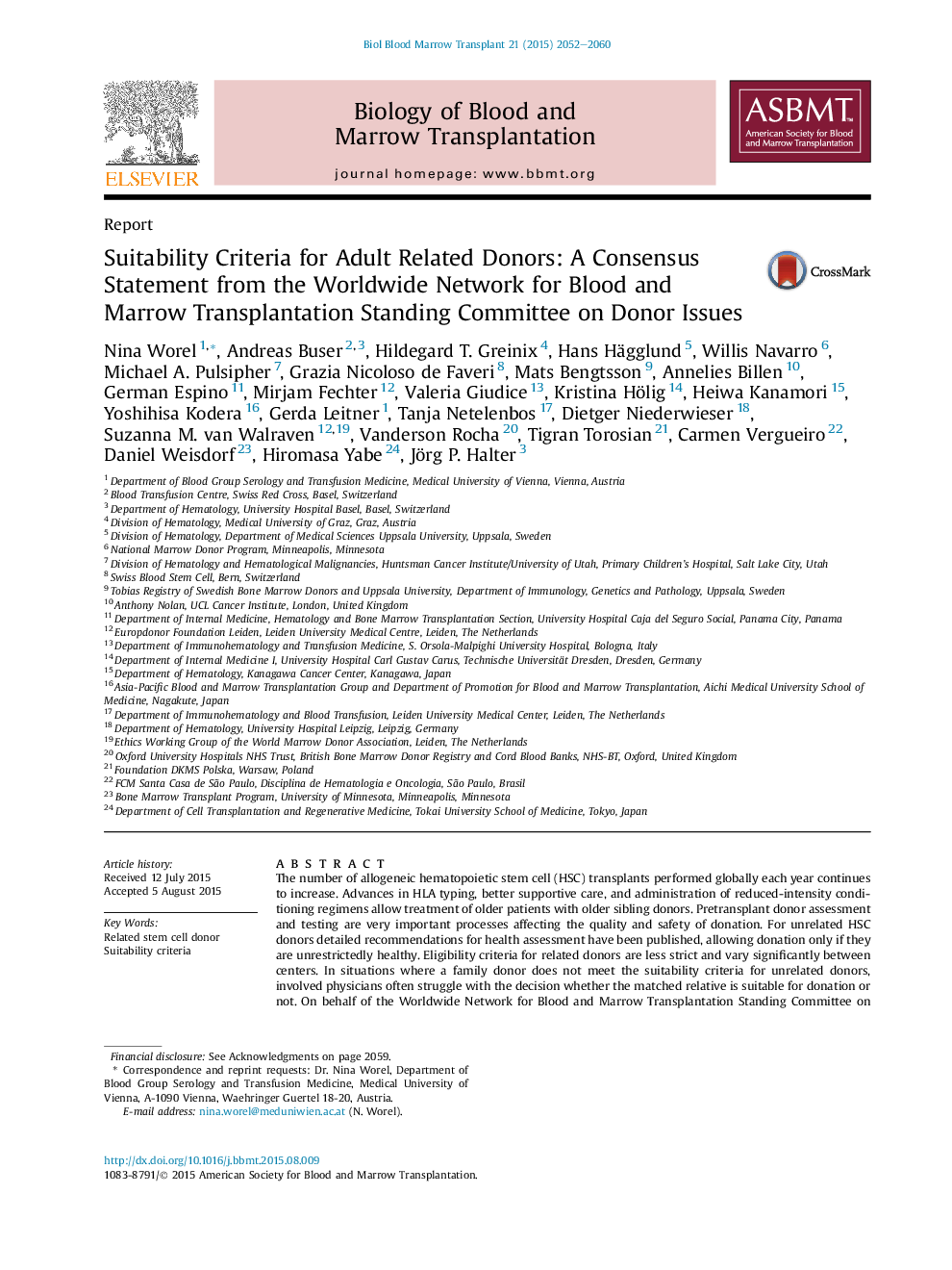| Article ID | Journal | Published Year | Pages | File Type |
|---|---|---|---|---|
| 2101371 | Biology of Blood and Marrow Transplantation | 2015 | 9 Pages |
•We provide recommendations for final clearance of family donors who cannot serve as unrelated donors.•We focus on general considerations and specific health disorders in family donors.•Recommendations will help to harmonize donor workup, increasing safety for donors and recipients.
The number of allogeneic hematopoietic stem cell (HSC) transplants performed globally each year continues to increase. Advances in HLA typing, better supportive care, and administration of reduced-intensity conditioning regimens allow treatment of older patients with older sibling donors. Pretransplant donor assessment and testing are very important processes affecting the quality and safety of donation. For unrelated HSC donors detailed recommendations for health assessment have been published, allowing donation only if they are unrestrictedly healthy. Eligibility criteria for related donors are less strict and vary significantly between centers. In situations where a family donor does not meet the suitability criteria for unrelated donors, involved physicians often struggle with the decision whether the matched relative is suitable for donation or not. On behalf of the Worldwide Network for Blood and Marrow Transplantation Standing Committee on Donor Issues, we intended to develop a consensus document with recommendations for donor workup and final clearance of family donors who would not be able to serve as unrelated donors because of their age or pre-existing diseases. This article covers different topics intending to support decision-making, with the goal of minimizing medical risk to the donor and protection of the recipient from transmissible diseases.
